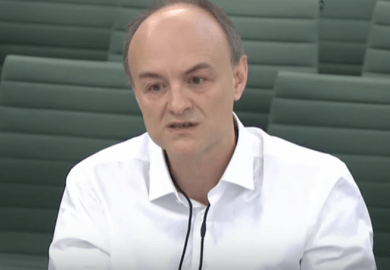The successful development of multiple effective Covid-19 vaccines within a year or so of the virus’ emergence has been a simple but powerful illustration of the power of research. It has also served as a reminder of all the other world-changing ideas that might be lying dormant. Because when money gets thrown at a problem, pure science can be turned into technologies with a value out of all proportion to the initial investment – and fast.
UK universities have plenty of the necessary genius for blue-sky science. However, they are held back from translating it by a culture that is caught up in its own traditions. This is why some within the sector regard the government’s early proposals for an Advanced Research and Invention Agency (Aria) as verging on the vulgar.
Aria’s remit is to pursue high-risk, high-reward research. But traditional science funding is stuck in routines that limit entrepreneurialism and the risk-taking involved. So Aria will bypass the fine discernment of peer reviews, disregard track record and get on with the job of making big ideas work in practice.
The research councils are very good at what they do, developing pools of high-quality discovery science in traditional subject areas. The grant application system – writing erudite essays and getting the support of other academics in top-ranked research institutions – does a good job of looking after the quality of the system. But it is not so good on the outcomes. Only the right stuff, the thinking with the right kind of heritage, gets through – and there’s no bother if the research leads to nothing in particular except the expansion of scholarship and its circles of interest.
Given the number of problems facing the world – all those “grand challenges” – we need a bolder approach. Why not give Aria a try? Far more taxpayers’ money than the £800 million proposed for it has been spent on projects with little or no tangible return. With this kind of transformational science approach, the potential for world-changing, long-term wins is immense. It will give the UK a chance to pick winners that make a real difference to the national drive for a zero-carbon future – new energy sources, new materials, alternatives to lithium batteries – as well as taking on issues of global food production and pursuing high-potential fields such as autonomous technologies.
Aria is said to be an old idea. Yes, it’s been tried and tested since the 1950s in the US by the Defense Advanced Research Projects Agency (Darpa), followed more recently by Japan’s Moonshot R&D programme and Germany SPRIN-D: the Federal Agency for Disruptive Innovation. But for the UK it’s very new – and very necessary.
Aria’s mix of funding vehicles will help enhance innovation. We’ve seen inducement prizes and seed grants before, but only individually, not all together as a package. We should also welcome the increase in competition for funding from commercial and individual researchers; it should spur academics to think in terms of delivery and real-life doing.
The real strength of Aria is the fact that decision-making on funding will be solely in the hands of programme managers, empowered to take big, calculated risks on proposals that have significant potential impact. These figures will be akin to entrepreneurs, introducing the kind of energy that start-ups have brought to other technology sectors (whose established players tend to channel their R&D spends towards known technologies, guaranteeing a return but not smashing down any walls). The kinds of people with the mix of technical expertise and project management skills already exist in chief technology officer roles.
The agency will also need a tough-minded leader. Very often, governments want a respected but charismatic figure to be the face of a flagship new project. In this case, we need someone who believes in all the possibilities and sticks to the bigger plan, without being side-tracked by political demands or a craving popularity. Someone like Ineos founder Sir Jim Ratcliffe would be ideal. A chemical engineer by training, he quietly focused on the commercial potential of technologies and, before the world realised it, had made an £18 billion personal fortune.
Changes to funding mechanisms can look and feel like a threat to higher education. But Aria will be a blast of fresh air for science and technology researchers, a bracing experiment. Best of all, it will encourage more diversity in academia. Universities will be able to offer another career pathway to people who may not be traditional academics but who have expertise and ideas and enjoy seeing their work change something, incentivising them to take risks and spin out companies.
In other words, Aria will bring status and recognition for the practical ideas people – not just the four-star-paper people.
Tom Stephenson is the former pro vice-chancellor for research and innovation at Cranfield University.
Register to continue
Why register?
- Registration is free and only takes a moment
- Once registered, you can read 3 articles a month
- Sign up for our newsletter
Subscribe
Or subscribe for unlimited access to:
- Unlimited access to news, views, insights & reviews
- Digital editions
- Digital access to THE’s university and college rankings analysis
Already registered or a current subscriber?









